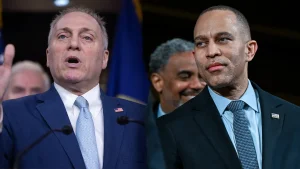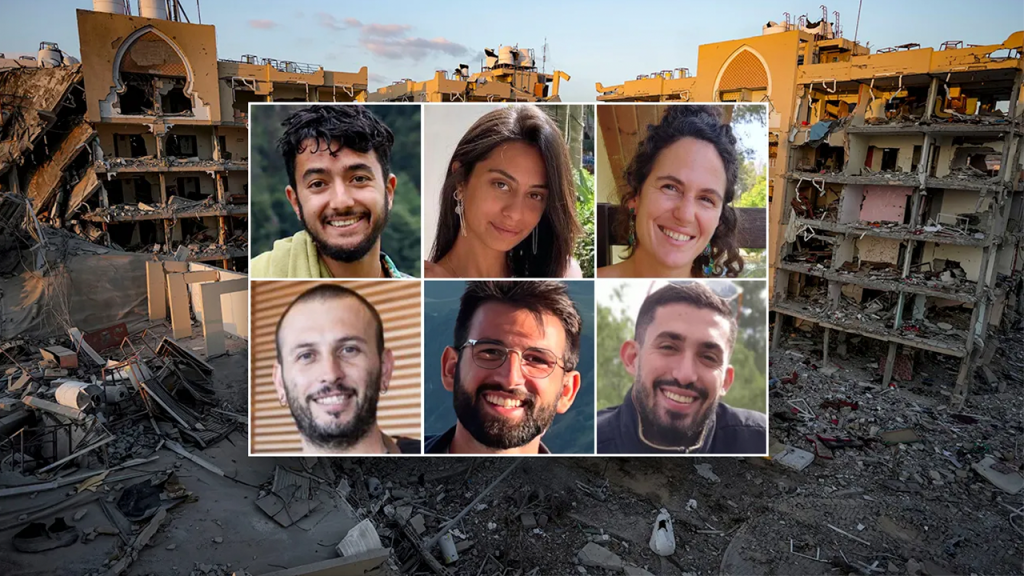One Year Later: Israel Marks Somber Anniversary of Six Hostages’ Deaths
In a poignant display of remembrance and resolve, nearly 100,000 Israelis gathered in Tel Aviv’s Hostages Square to mark the one-year anniversary since the recovery of six hostages executed by Hamas in Gaza. The day was heavy with emotion as family members of Eden Yerushalmi, Ori Danino, Carmel Gat, Almog Sarusi, Alexander Lobanov, and American-Israeli Hersh Goldberg-Polin called for urgent action to bring remaining captives home. A massive flag was unfurled with a direct appeal to President Trump to “Make History” by facilitating a hostage release agreement. The commemoration comes at a critical juncture as Israel has launched a new military operation in Gaza City, raising concerns about the safety of the 48 hostages believed to still be in captivity, 20 of whom are thought to be alive.
“How do you sum up in a few words what you want to be remembered about your only son?” reflected Jon Polin and Rachel Goldberg-Polin, parents of Hersh, who was just 23 when killed. “He was a gift, a blessing, a talented listener, funny, respectful and a curious citizen of the world. He was not perfect, although most of us parents want to believe that about our children. But he was, indeed, the perfect son for us.” Their words capture the deeply personal tragedy behind the political crisis, reminding everyone that behind each statistic is a beloved family member whose absence leaves an unfillable void. The anniversary’s timing coincides with intensified military operations, which have sparked heated debate within Israeli society about whether such actions might endanger the remaining hostages.
The Hostage and Missing Families Forum has expressed growing frustration with what they see as stalled negotiations while military operations advance. “This nightmare must end!” they declared in a statement that resonates with anguish and urgency. “For 694 days, our loved ones have endured hell, and we as a nation have lost all sense of direction. Escalating military pressure abandons the living hostages to their fate and leaves the bodies of those already dead buried forever in Gaza’s rubble.” This viewpoint represents one side of a painful national divide about how best to secure the hostages’ return. The IDF’s recent recovery of two more hostage bodies has only intensified the debate over strategy, highlighting the human cost of the ongoing conflict while underscoring the complex reality that time may be running out for those still held.
Within Israel, there exists a significant divide over the best approach to secure the hostages’ return. Tzvika Mor, father of hostage Eitan Mor and co-founder of the Tikva Forum, represents those who believe that only Hamas’s complete defeat will ensure lasting safety. “Most families want all hostages returned at once,” Mor explained. “Here is where we are divided. The Tikva Forum believes Hamas must be defeated and forced to surrender to Israel, while other families believe Israel must surrender to Hamas to rescue the hostages.” Mor invoked Israel’s historic 1976 Entebbe rescue operation as an example of the nation’s tradition of fighting for its citizens rather than yielding to terrorist demands. This philosophy aligns with Prime Minister Netanyahu’s insistence on a comprehensive ceasefire that would return all hostages and end the conflict on Israel’s terms.
The crisis has become increasingly entangled with international diplomacy and U.S. politics. Former President Donald Trump recently suggested the conflict could be resolved within weeks, and subsequently chaired a White House meeting to discuss post-war planning for Gaza. U.S. special envoy Steve Witkoff affirmed the Trump administration’s alignment with Israel against accepting a partial hostage deal, telling Fox News that Hamas had “slow-played” previous negotiation attempts and was now changing position only because of increasing Israeli military pressure. This stance appears to support Netanyahu’s recent decision to expand military operations, which he described as “unequivocal” during a meeting with Senator Joni Ernst.
Opposition voices within Israel offer different perspectives on the path forward. Opposition Leader Yair Lapid told Fox News Digital that his Yesh Atid party supports “a full comprehensive deal which will include the return of all the hostages and an end to the war.” However, he added a crucial caveat: “If that deal isn’t possible, then Israel should accept the partial deal that has been agreed to, which will give us time to achieve a full deal.” This represents a more flexible approach than the government’s current position and acknowledges the difficult realities of negotiating with Hamas. As the debate continues, the families of hostages remain in painful limbo, their lives suspended between hope and despair as military and diplomatic efforts proceed on parallel tracks.
For Israelis, the anniversary of the “Beautiful Six” represents more than just a moment of remembrance—it embodies the nation’s ongoing struggle with impossible choices. Each day that passes brings both renewed determination to defeat Hamas and increased anxiety about the fate of those still held captive. As military operations intensify in Gaza City, the question looms large: will increased pressure force Hamas to release hostages, or will it place them in greater danger? The massive gathering in Tel Aviv demonstrates that despite political differences, the return of all hostages remains a unifying national priority. Yet the path to achieving this goal continues to divide a nation that is collectively traumatized by the events of October 7th and everything that has followed in its devastating wake.















